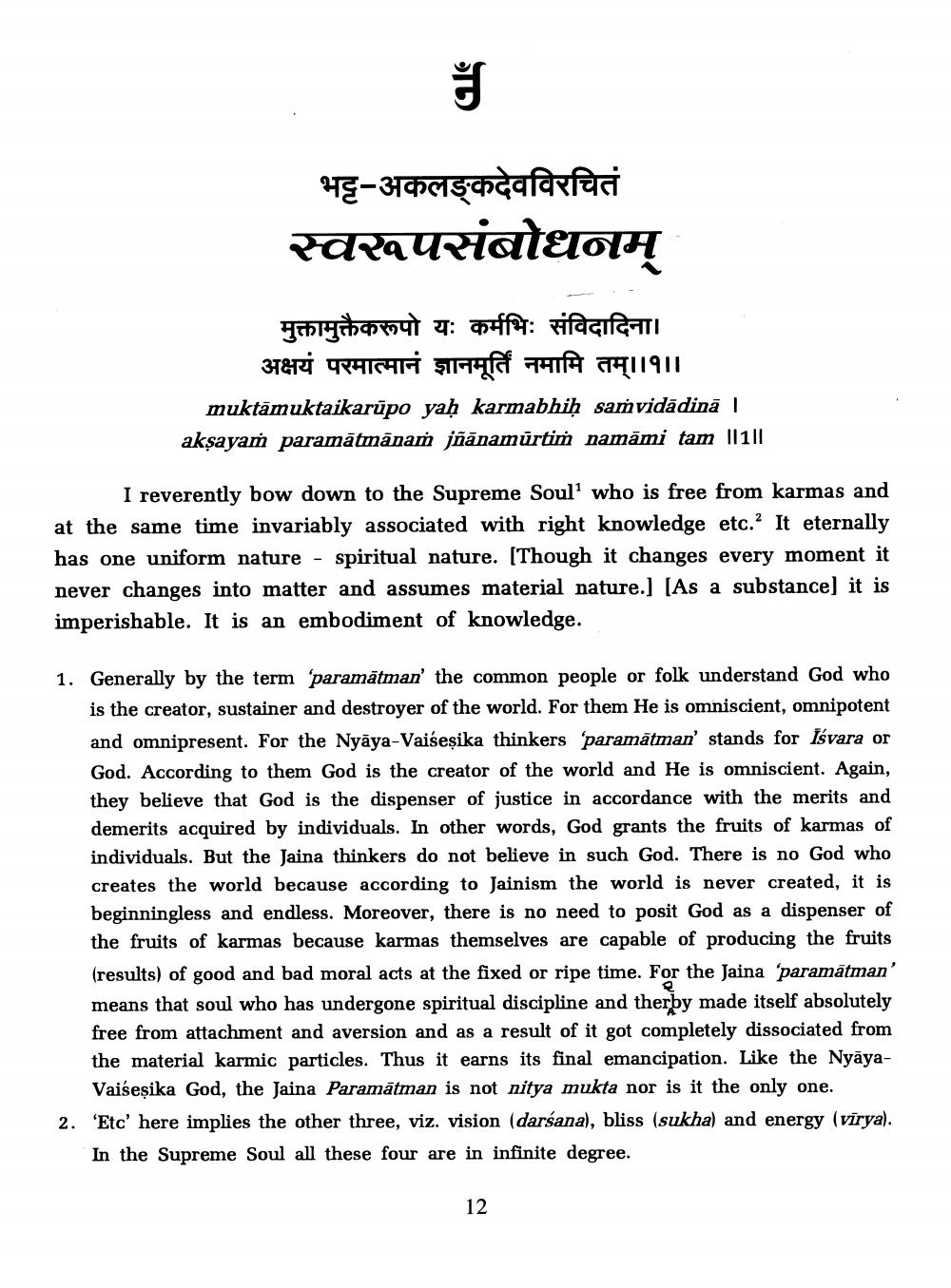________________
भट्ट-अकलङ्कदेवविरचितं स्वरूपसंबोधनम्
मुक्तामुक्तकरूपो यः कर्मभिः संविदादिना।
अक्षयं परमात्मानं ज्ञानमूर्तिं नमामि तम्।।१।। muktāmuktaikarūpo yaḥ karmabhiḥ saṁvidādinā | akşayaṁ paramātmānam jñānamurtis namāmi tam 111ll
I reverently bow down to the Supreme Soul' who is free from karmas and at the same time invariably associated with right knowledge etc.It eternally has one uniform nature - spiritual nature. (Though it changes every moment it never changes into matter and assumes material nature.] [As a substance) it is imperishable. It is an embodiment of knowledge.
1. Generally by the term 'paramātman' the common people or folk understand God who
is the creator, sustainer and destroyer of the world. For them He is omniscient, omnipotent and omnipresent. For the Nyāya-Vaiseșika thinkers (paramātman' stands for Isvara or God. According to them God is the creator of the world and He is omniscient. Again, they believe that God is the dispenser of justice in accordance with the merits and demerits acquired by individuals. In other words, God grants the fruits of karmas of individuals. But the Jaina thinkers do not believe in such God. There is no God who creates the world because according to Jainism the world is never created, it is beginningless and endless. Moreover, there is no need to posit God as a dispenser of the fruits of karmas because karmas themselves are capable of producing the fruits (results) of good and bad moral acts at the fixed or ripe time. For the Jaina 'paramātman' means that soul who has undergone spiritual discipline and therby made itself absolutely free from attachment and aversion and as a result of it got completely dissociated from the material karmic particles. Thus it earns its final emancipation. Like the Nyāya
Vaiseșika God, the Jaina Paramātman is not nitya mukta nor is it the only one. 2. 'Etc' here implies the other three, viz. vision (darśana), bliss (sukha) and energy (vīrya).
In the Supreme Soul all these four are in infinite degree.
12




